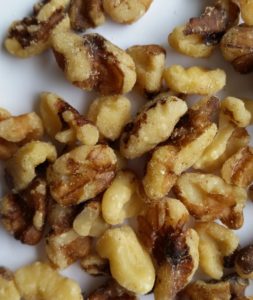 Summer is a wonderful season here in the northeast US, but there is a dark side - ticks. Tick numbers, types of ticks, and diseases (including Lyme disease) that people are getting from tick bites are all increasing. Nothing seems to stop their spread and their increasing numbers. But what if a fungus that kills ticks is the answer? The fungus is Metarhizium anisopliae, which occurs naturally in forest soils. It is sold as Met52 - a non-toxic to humans and pets product that anyone can now purchase.
Summer is a wonderful season here in the northeast US, but there is a dark side - ticks. Tick numbers, types of ticks, and diseases (including Lyme disease) that people are getting from tick bites are all increasing. Nothing seems to stop their spread and their increasing numbers. But what if a fungus that kills ticks is the answer? The fungus is Metarhizium anisopliae, which occurs naturally in forest soils. It is sold as Met52 - a non-toxic to humans and pets product that anyone can now purchase.
The product is now being tested in a multiyear study (led by R. Ostfeld & F. Keesing) in 24 neighborhoods with a high incidence of Lyme disease in New York state. Studies show that ticks die within 3 to 7 days after being exposed to Met52 (a spray made up of the fungal spores and water). Personally, I am very excited by this natural product and hope that it works well. The researchers are hoping for a 90% reduction of ticks (or more!) in areas and yards where it is applied! That is better control than the insecticides typically used. The researchers feel that if this works well, then municipalities or neighborhoods could do it on a large scale for tick control.
I first read about the study in this July 2018 article by M. Molteni in Wired: WE HAVE NO IDEA HOW BAD THE US TICK PROBLEM IS
Together, these efforts are helping to change the way people and government agencies think about ticks as a public health threat. ...The trouble is that scientists also know very little about which interventions actually reduce those risks. “There’s no shortage of products to control ticks,” says Ostfeld. “But it’s never been demonstrated that they do a good enough job, deployed in the right places, to prevent any cases of tick-borne disease.” In a double-blind trial published in 2016, CDC researchers treated some yards with insecticides and others with a placebo. The treated yards knocked back tick numbers by 63 percent, but families living in the treated homes were still just as likely to be diagnosed with Lyme.
Ostfeld and his wife and research partner Felicia Keesing are in the middle of a four-year study to evaluate the efficacy of two tick-control methods in their home territory of Dutchess County, an area with one of the country’s highest rates of Lyme disease. It’s a private-public partnership between their academic institutions, the CDC, and the Steven and Alexandra Cohen Foundation, which provided a $5 million grant. ...continue reading "Is A Tick Killing Fungus The Answer to Tick Control?"

 Chronic low-grade inflammation in humans is drawing a lot of interest because it is linked to so many diseases (diabetes, cancer, etc). Key ways to lower this inflammation appear to be losing weight (if overweight), exercising, not smoking, and eating a healthy diet rich in fruits, vegetables, whole grains, nuts, and seeds (thus lots of
Chronic low-grade inflammation in humans is drawing a lot of interest because it is linked to so many diseases (diabetes, cancer, etc). Key ways to lower this inflammation appear to be losing weight (if overweight), exercising, not smoking, and eating a healthy diet rich in fruits, vegetables, whole grains, nuts, and seeds (thus lots of  People are excited over the possibility that herpes viruses could be behind Alzheimer's disease and whether it could be prevented with the use of
People are excited over the possibility that herpes viruses could be behind Alzheimer's disease and whether it could be prevented with the use of  The last few days a number of articles appeared in the news about the official US government's
The last few days a number of articles appeared in the news about the official US government's  Does it matter what blood type (A, O, B, AB) we have when dealing with microbes that can make us sick? Apparently it does for certain illnesses.
Does it matter what blood type (A, O, B, AB) we have when dealing with microbes that can make us sick? Apparently it does for certain illnesses.
 People ask me: what's going on with research in the treatment of sinusitis with probiotics? Well, the answer is that things are moving along slowly - very slowly, but there are good signs.
People ask me: what's going on with research in the treatment of sinusitis with probiotics? Well, the answer is that things are moving along slowly - very slowly, but there are good signs.
